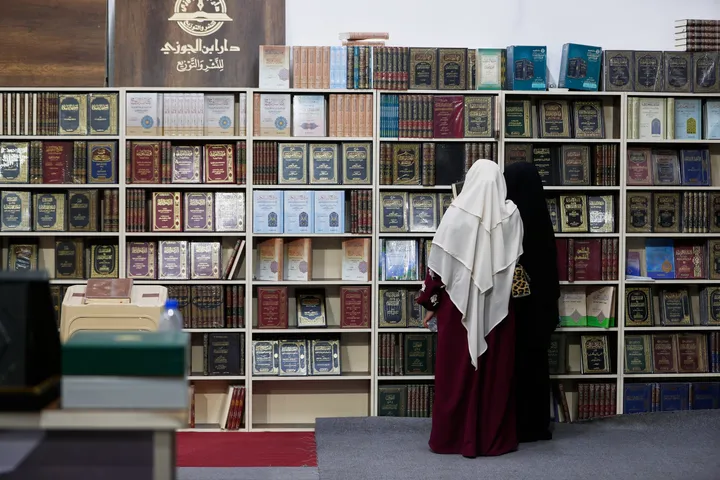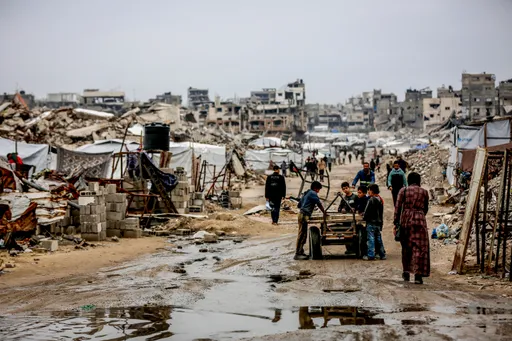On the night of July 15 five years ago, Turkey was cold-shouldered by its traditional NATO allies, primarily the US, while a rogue part of the Turkish army affiliated with Fetullah Terror Organisation (FETO) attacked the country's key institutions both aerially and by land, even running over protesting civilians with tanks.
Turkey’s friends in the Gulf except Qatar were not supportive of Ankara either as later reports indicated that the UAE had supplied funds to coup plotters. Abu Dhabi's official condemnation of the coup came 16 hours late after the coup plotters' attempt was foiled by the Turkish government and its people.
As the coup unfolded, it not only targeted the Turkish institutions but also civilians. At least 250 Turkish citizens were killed and several thousand wounded by the coup plotters.
With the deafening silence from its NATO allies, especially the US, one thing became clear for Turkey’s governing establishment led by President Recep Tayyip Erdogan that Ankara cannot trust its NATO allies much in its time of need.
The failed coup raised serious questions in Ankara “on the loyalty of NATO partners”, says Richard Falk, professor of international law at Princeton University, who was in Istanbul during the night of the coup attempt.
“There was not only a display of ‘wait and see’ attitudes in the principal capitals of Western Europe and of Washington as the coup unfolded, but there was no show of support for the legitimate government of Turkey from longtime allies,” Falk tells TRT World.
“This seemed to send a message to Ankara that it should diversify its relations with other countries, and in particular, seek to deepen relations with important other countries, including Russia and China,” the professor said.
Turkey’s relations with both Russia and China have improved after the coup attempt as Ankara and Moscow have sought a common understanding on dealing with the Syrian conflict and other areas like bilateral military cooperation.
In one of the outcomes of improving ties with Moscow, Turkey did not hesitate to buy Russian S-400s despite US objections to the deal, which was dictated by Ankara's main interest of securing its air defence in its tough neighbourhood.
Trust deficit
Like Falk, other experts have also observed a widening trust deficit between Turkey and NATO allies, primarily the US, following the coup attempt.
“The July 15 coup attempt had a profound impact on Turkey’s foreign policy because that coup attempt undermined trust between Turkey and the US and other NATO allies,” says Matthew Bryza, a former US diplomat, who had worked as a top foreign policy official in the White House under both Republican and Democrat administrations.
Fetullah Gulen, the FETO leader, continues to live on American soil in Pennsylvania, and his group, a byproduct of an enigmatic religious movement with international ties, freely operates across the US, making Turkey suspicious whether Washington has played any secret role in the coup or not.
“In Turkey, the belief was that the US must have somehow been involved [in the coup attempt] if Fetullah Gulen enjoys the right to reside in the United States,” Bryza tells TRT World.
There were “some clear indications” that the coup plotters received “a green light” to proceed from Washington, says Falk. “There were reliable reports of CIA involvement and collaboration with FETO, and although never definitively confirmed it led to Turkish attitudes of wariness and some distrust with respect to its relations with the United States.”
Despite Turkey’s suspicions, Washington has not appeared to be willing to do things to alleviate Ankara’s concerns.
“I think in the US, there was a deep under-appreciation of the fact that Turkey thinks this way and the coup attempt was real and dangerous and could have - God forbid - resulted in the overthrow of the democratically-elected NATO government,” Bryza says.
Due to these “misconceptions”, the US was “very slow” to recognise that not only the coup attempt was real but also it was great that the coup plotters were defeated, according to Bryza. “Thanks goodness! Turkish democracy survived. It just took too long for the US to recognise that,” the American diplomat views.
As a result, “tension between Turkey and the US remains much higher than it should be,” the diplomat analyses.
Turkey’s trust issues are not limited to the US. During the night of defiance, most Western countries, which constantly preach to other countries like Russia and China to be more democratic, appeared to look like they were in mute mode in the face of a military coup, angering Ankara.
“Turkey espoused a more critical tone against the alliance, especially in the aftermath of the failed coup attempt of July 15, due to alleged links of the Gulenist putschists with NATO,” wrote Bulent Aras, professor of international relations at the Qatar University, in an article penned six months after the coup.
The coup attempt hardened the Turkish perception that hostile forces like FETO were receiving help from governments “supposedly friendly” with Ankara, according to Falk.
But even after the coup attempt, Ankara feels the Western nations have failed to show any real empathy toward Turkey’s experience on the night of July 15.
“The ensuing deterioration of relations with the West in general was due to a perceived lack of support for the democratically-elected government in Turkey and Western inability to disassociate itself from the Gulenists, which was literally harboured in the United States and Europe, particularly in Germany, in terms of human resources and lobbying power,” Aras wrote.
All these make the Turkish leadership believe that being self-reliant and establishing alternative international alliances with countries like Russia to secure a “strategic autonomy” matter much for the country’s long-term interests and survival.
Self-reliance
In Turkey, there is a well-known proverb: “A bad neighbour makes one a property owner.”
While Turkey does not have very good neighbours, the growing trust deficit with its NATO allies appears to play a much bigger role in the country developing an autonomous foreign policy, which is less attached to NATO concerns than it had previously been the case.
“It's made Turkey more sensitive to foreign influence and intervention. Since 2016, Turkey has become more assertive and independent in its foreign and military policy,” says Sami al Arian, a Palestinian-American professor and director at the Center for Islam and Global Affairs (CIGA) at Sabahattin Zaim University.
“Turkey has realized that it needs to project strength to deter foreign powers from interfering in its internal affairs. Turkey has also demonstrated that it's willing to use hard power to protect its national interests and not just soft power,” Arian tells TRT World, referring to Turkey’s cross-border operations in northern Syria and Iraq, where Ankara has established a military presence following its interventions.
Turkey’s new foreign policy approach has caught the attention of some countries like the US and its regional allies, Israel and the UAE, which perceive that “Turkey is trying to become a regional hegemon because of its increasingly independent posture,” the professor says. “Therefore, they've pursued a policy of containment and aggressive behaviour towards it.”
“In return, Turkey has had to depend more on its own resources, build alternative alliances, and strengthen its relations with other great powers such as Russia and China,” he says, referring to Turkey's efforts to find a self-reliant path.
Aras, the Turkish professor, predicted correctly in his early 2017 article that “the emerging Turkish security doctrine would be defined more through self-help than collective security and seek alternative engagements to face multidimensional threats.”
“On that note, the primary Turkish goal appears to be optimum independence in military technology with special emphasis on the national defence industry to build national tanks, attack helicopters, unmanned aerial vehicles (UAV), satellites, fighter jets, warships, and rifles,” the professor added.
Since then, Turkey has shown the power of its military technologies in different battlefields from Libya to Syria, Iraq and Azerbaijan.
Turkish-made drones have played a critical role to force Libyan warlord Khalifa Haftar forces to retreat from western parts of the country last year as it also stopped an Assad regime assault on Idlib, the sole opposition enclave in northwestern Syria in early 2020. Turkish military support was also crucial for the Azerbaijani army’s victory against occupying Armenian forces in the disputed Nagorno-Karabakh region this year.
Turkey’s newly built native frigates have also demonstrated the country’s naval strength across the eastern Mediterranean, deterring countries like France and Greece in the region. Trusting its military technology and newly-developed navy, Turkey has pursued an assertive foreign policy across the eastern Mediterranean, signing a maritime agreement with Libya’s UN-recognised Tripoli government.
Ankara also opposed the Saudi-UAE coalition’s failed blockade against Qatar, sending military reinforcements to Doha in late 2017.























